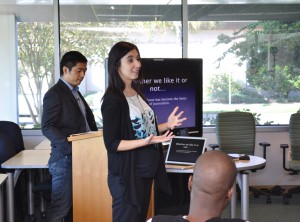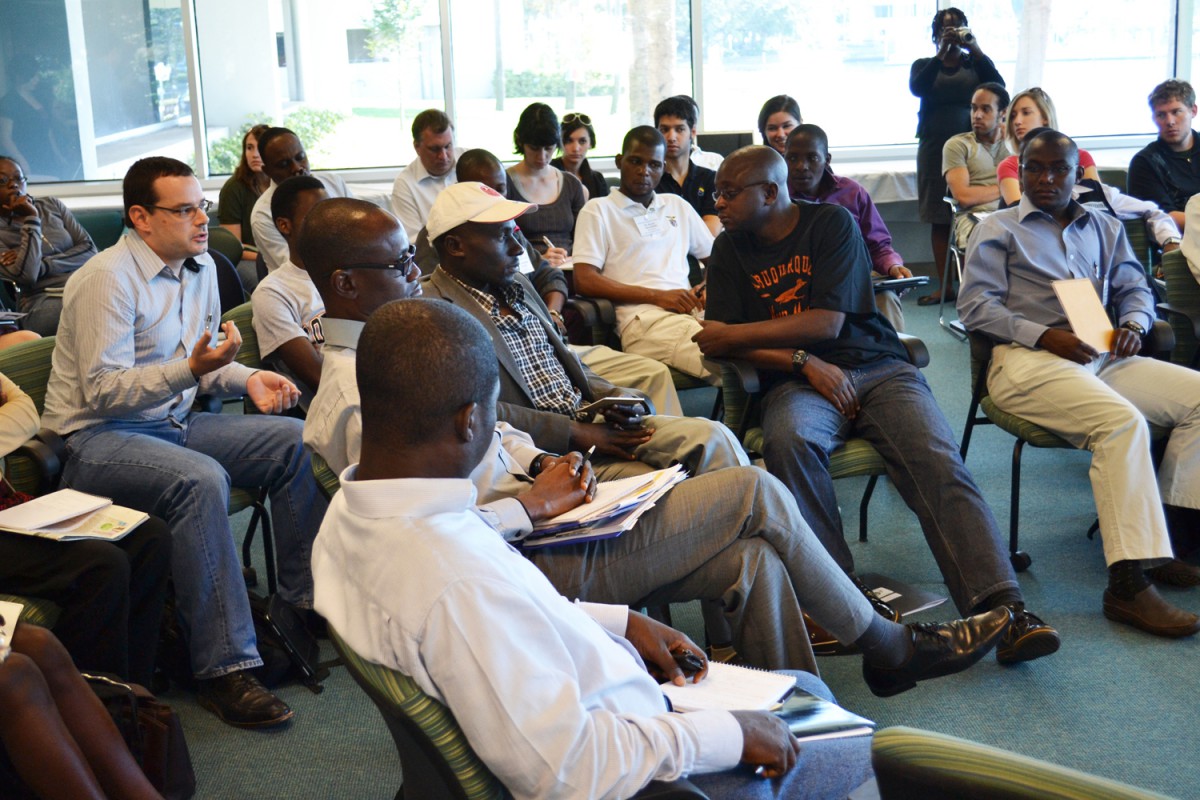Instant news from social media and contextualized news from traditional media were discussed with a group of 16 African journalists who visited in conjunction with the Edward R. Murrow Program on Nov. 3.
Monica Ancu and Paul Wang, professors in the Department of Journalism & Media Studies, presented at the Nelson Poynter Memorial Library to mostly journalism graduate students.
Ancu and Wang discussed mobile journalists, or “mojos,” whose news crew is a pocket-sized smartphone.
Ancu said the cellphone has become the “Swiss army knife of reporting,” noting all the applications available for use, such as video cameras, voice recording and note-taking abilities.
“The appeal of the story is being uploaded immediately,” Ancu said.

Julian Rademeyer, chief reporter for Media24 Newspapers in South Africa, said that’s not enough.
“The only quality of social news is its immediacy,” he said.
Rademeyer had little hesitation stressing his concern for news losing the quality of context without answers to fundamental questions.
Ancu and Wang showed video examples of citizen journalism beating media organizations to the punch, gathering authentic video for public consumption. In addition to the mobility and immediacy of a smartphone, websites such as Ustream.com and Qik.com allow users to stream live video from their phones.
Media organizations such as California’s Sacramento Bee used Qik.com as early as 2008 to provide live footage of protests during the Olympic torch procession directly from a cellphone. Use of a smartphone also dramatically cuts production cost.
Cesar Lugaro, mass communications major, was called on from his seat in the audience, saying big media outlets ignored the early protests of Occupy Wall Street. Lugaro believes event coverage by citizens acted as wake-up call to media organizations.
“If it hadn’t been for cellphones and citizen journalists, it might have … kept being ignored from the big movement that it is,” Lugaro said.
Tony Silvia, journalism and media studies professor, commented from the audience, acknowledging that someone’s first contact with news isn’t the only contact. Media research in America has suggested that after being informed by social media, people refer, ironically, back to traditional media, Silvia said.
“It actually brings people back to trusting credible journalistic sources,” he said.
While smartphones may not outsource journalists in the hands of citizens, many agreed the devices empower the community along with journalists.



